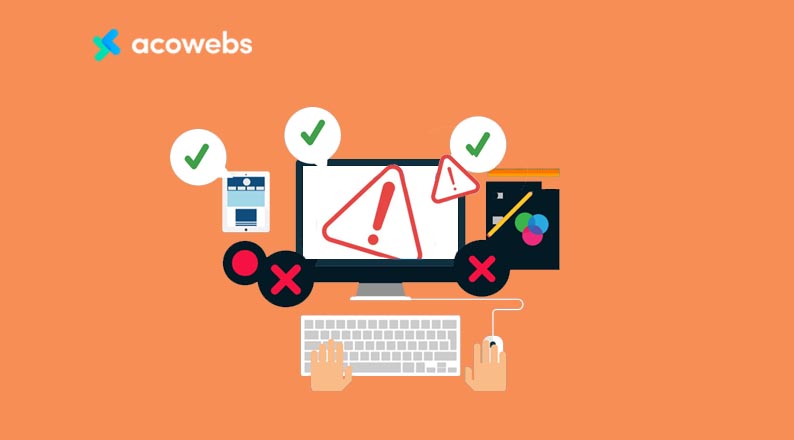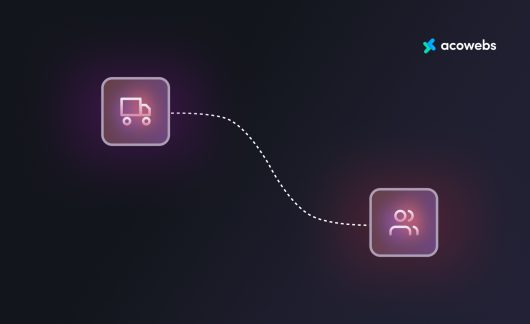Communication is so crucial to running an eCommerce business that fails to interact effectively with your customer base can cost you not only leads but also sales and profitability.
You could be drafting all manner of pieces describing your brand offering and product descriptions, but if your sales copy is not persuasive enough, you will still lose your web visitors and potential customers to the competition.
Writing effective landing pages is not always an easy task, but you can still become a pro if only you know the mistakes to avoid. There are common mistakes businesses make when developing their sales copies, leading to slow sales and even failure of their eCommerce marketing campaigns.
How can you escape the deadly trap of creating ineffective content and copies that end up killing your conversions?
In this article, you will learn what copywriting is, why it is important, 6 common eCommerce copywriting mistakes, and how to avoid them.
What is copywriting?

Copywriting entails putting down compelling and persuasive marketing and promotional materials. These pieces motivate people to take action, which can be in the form of purchasing your products or services, clicking on your links, booking an appointment, or even signing up for a newsletter.
Copywritten materials come in many forms, including promotions published on your eCommerce site, spoken scripts for commercials, or video marketing pieces.
The emails you send to the target customer after signing up for your products, landing pages, product pages, and the free reports customers register for all contain elements of copywriting.
For instance, Moosejaw, an outdoor apparel brand, uses compelling sales copies across the homepage and product pages to convince the potential buyer why they should buy the company’s products or participate in other marketing causes.
The homepage features a $10 reward to the favorite customer to persuade them to take part in the company’s survey – the survey contains engaging questions that enable shoppers to learn the factors they should consider when buying Moosejaw products.
This practice helps in moving customers up the sales funnel as they become curious about the products on sale.
Moosejaw’s product pages also feature compelling sales copies. For instance, if you are into outdoor activities like hiking and camping, you might be interested in securing quality ice, food, and beverage coolers, such as those sold by YETI.
Aside from the standard product features and specifications, you will also find copywriting infused in the product pages, containing the solutions offered by the product and the call-to-action button:
Your sales copy should communicate to customers easily without taking up too much space talking about the product features.
But why should you invest in effective copywriting practices?
Why copywriting is important
A good sales copy is effective enough to differentiate your product or service offering from the competition.
It is also a great way of anticipating customer objections and questions (such as through surveys), as well as appealing to their interests by featuring product benefits and solutions.
Effective copywriting also helps boost the conversion rates by up to 2 or 4 times the standard levels. Well-written sales copies evoke shoppers’ emotions, driving action. For instance, Invesp increased conversion rates by more than 90% by revolutionizing their copy and value proposition across all eCommerce favorite customer touchpoints.
Now that you understand why you should invest in quality copywriting,-either as a writer yourself, using AI writing software or by hiring great copywriters who are masters of their craft– it’s time to learn the things to avoid to keep your sales copies fresh, engaging, and compelling.
ALSO READ: Top 8 Social Media Strategies That Every E-commerce Store Needs To Implement
6 Common Ecommerce Copywriting Mistakes And How To Avoid Them
1. Excessive focus on product features
As a salesperson or marketer, you want the unique features and specifications of your product or service to stand out. That given, you may be tempted to list down the key elements that differentiate your offering from the competition.
However, customers are not interested in product features and specs as much as they do in the solutions offered. Users want to know what is in it for them, and how your products and services meet their needs or solve their problems.
When writing down a sales copy showcasing your eCommerce product specifications, always accompany it with the benefits the user or the potential buyer is expected to get from buying and using the item.
Unlike product features which show the characteristic features of a product, benefits outline what the shopper will gain from paying for the product.
For example, you can indicate how the product improves the user’s health, financial wellbeing, etc. If you offer travel or tour services, for instance, let your copywriting show the services you are offering, but most importantly, what value customers are going to gain from paying for the trips.
Intrepid’s premium package, for instance, features trip specs like the 15-day tour to Turkey and a journey to Morocco. At the same time, the sales copy outlines multiple benefits the favorite customer will get from booking a premium trip, such as exceptional accommodation, unique experiences, and unmatched knowledge acquisition.
Your product features will not compel customers to make a buy decision unless shoppers understand the benefits attached to those features.
2. Not being specific
Avoid using generalized product descriptions because such statements lack credibility. When you use generalized sales talk, you imply that you have no evidence or content to support the claims made in your sales copy.
Examples of overly-used general terms when describing products and services include “simply the best”, “world-class”, “innovative”, and “market-leading”.
While the product specs and benefits should not be overdone, failure to specify exactly what you are selling will bore site visitors, leading to lost sales.
You should analyze your sales copy to determine if the content is relevant. If you cannot tell the meaning of your words and sentences, you should consider removing or editing them.
Additionally, you can replace some terms with figures or numbers written in digit form, as this practice helps improve credibility, making your sales copy believable. Where applicable, Show numbers, not numerals when doing eCommerce copywriting.
For instance, you should use “10” instead of “ten” to catch your customers’ eyes whenever they browse the web for products and services.
ModCloth’s homepage copywriting is quite specific and compelling at the same time. It contains product features (flora & fauna fashion in diverse size range: XXS-4X), and benefits like unique style and a one-stop shop where shoppers can find all the product sizes.
Instead of writing the product sizes or measurements in word form, (such as size ten, and small, large, and extra-large), ModCloth uses numbers, which makes the copy stand out.

Save the product specs for the ‘Read More’ sections of your homepage or product pages. Instead, dwell on the most specific aspects of the product and relate them to the benefits.
ALSO READ: Tips to use content marketing for eCommerce sales
3. Too dense and poorly structured descriptions
Ensure to break up your product descriptions and benefits to make them scannable by the reader. Avoid using large blocks of text in your eCommerce sales copies as they are hard to read and understand.
Instead, use bullet points, shorter paragraphs, and subheadings to drive your point across.
For instance, Apple’s product page makes it easy for shoppers to locate compelling information and benefits. iPad mini’s product page is split into 2 – the first section shows the general overview of the product’s features and benefits, while the second section shows more detailed specs like design, performance, display, and their accompanying benefits. None of these descriptions are too detailed; they are split into short paragraphs, and shoppers who want to get more information can always click on the ‘learn more links’.
You’ll also notice that the call-to-action buttons, such as the buy button, remain visible as you scroll down the product page.


Here is another example of well-structured copywriting by Gillette:
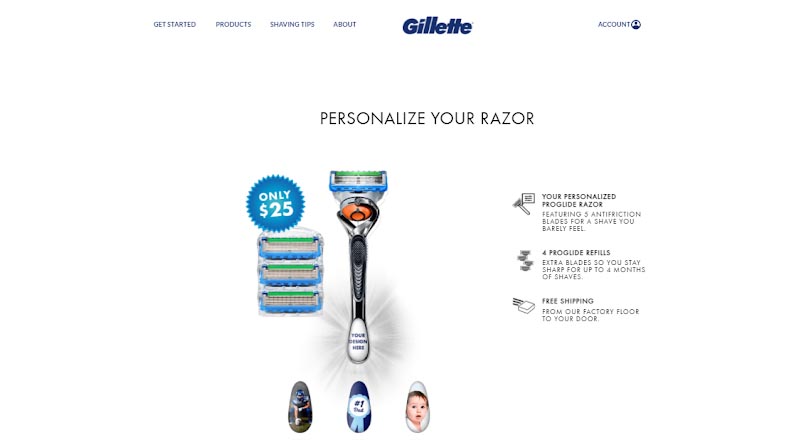
When you use short-form paragraphs in product descriptions and accompany them with product feature images and simple but specific descriptions, you improve the visibility of the most important aspects, driving the shopper’s purchasing decision.
Keep in mind that marketing is not all about what you sell, but how you sell it.
4. Failure to support product claims vs. over-use of factual information
Should you or should you not use facts in your product descriptions?
The answer to this question is two-way. On the one hand, backing up information about the features and benefits of your product will help improve credibility. On the other, over-reliance on facts will kill the effectiveness of your sales copy.
When a customer reads through the sales copy, they become convinced that your product will truly meet their needs or solve their problem.
Ford’s homepage illustrates how to avoid eCommerce copywriting mistakes as the company’s marketing claims on the website homepage are supported with facts:
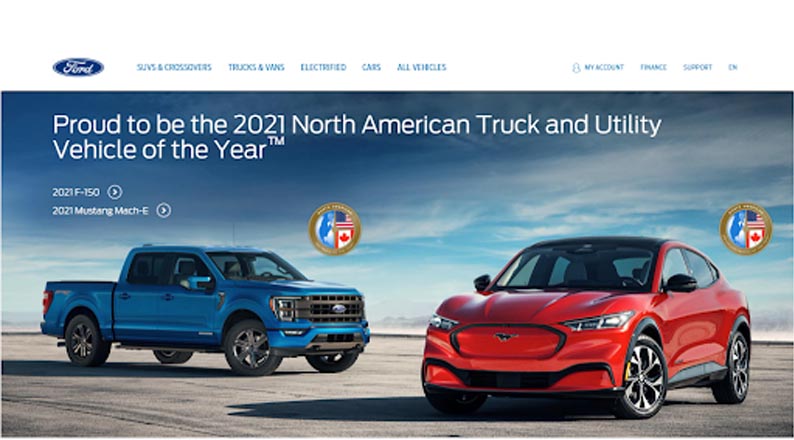
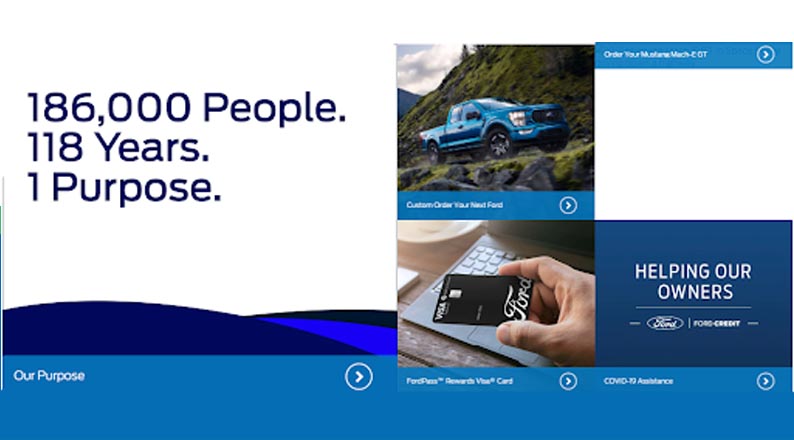
However, you will notice that in the case of Ford motor company, the data displayed on the sales copy is quite minimal.
Indeed, one mistake eCommerce marketers make is focusing on too many facts and forgetting to keep visitors engaged with stories behold the data. Facts give your stories substance, but stories accord them meaning.
Instead of writing generic eCommerce sales copies, consider spicing them up and making them more engaging by telling a short, simple story. The goal is to help customers visualize the benefits of your product or service, and how it will solve their problem.
Refrain from talking about the obvious by telling engaging and entertaining stories, which will compel potential customers to buy your product. Facts do not stand on their own – accompany them with visual or written stories to give them a soul and personality to make your content persuasive.
ALSO READ: Use of discount pricing strategies to make sales
5. Failure to recognize mathematical literacy

Let’s say you are marketing two deals – one offering ‘20% off the regular price and another, ‘20% extra free’. Which one will compel most customers to act?
Note that the two offers do not mean the same thing. The ‘extra free’ concept implies that your offer is better and cheaper, and many customers will be inclined to buy the item because they will see the deal as referring to a 20% discount on an already improved or enhanced product.
The ideal customer feels that they are getting something extra for less, which is better than getting the same item for less.
There are many ways of applying the concept. For instance, if you are selling a car, skip the discount talk, and talk about the extra miles instead.
According to research by The Atlantic, this tactic works because consumers don’t know the cost of the products you’re selling. Additionally, while customers consider how much they are spending in dollar terms, their decisions are still based on impressions and clues.
Consumers are terrified of extremes – they don’t like feeling cheap, but at the same time, they don’t like the feeling that they are being duped. Still, you can play around with the concept of mathematical literacy to make more sales honestly.
For example, if you placed two identical items together, one a model costing $500 and the other, the product on sale, costing $300, many customers will buy the $300 product. This strategy makes the accompanying product appear cheaper than the model, yet the two are identical.
Let your eCommerce copywriting pieces do the sales for you. Instead of telling customers what they will save, let them see what they stand to get for free.
6. Lack of persuasion
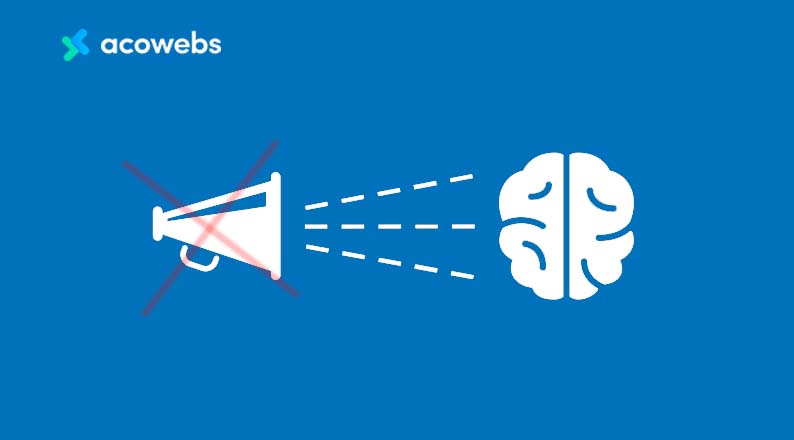
How well does your eCommerce copywriting compel potential customers to take action?
It all depends on how you communicate. According to a 1970 experiment conducted by Ellen Langer, Benzion Chanowitz, and Arthur Blank, people respond better to persuasive language.
The researchers asked the study participants (people using copying machines) if they (the researchers) could be allowed to cut in line to use the Xerox machine. However, no reason was given for this request.
In the second instance, the researchers asked to cut in line because they were in a rush. In the third scenario, the researchers asked if they could cut in line because they had to make some copies.
Results from scenario one, whereby the researchers did not provide a reason for being allowed to cut in line, showed that 60% of the participants said yes. The explanation provided in scenario two caused the conversion rate to rise to 94%. Even a simple and obvious explanation as shown in scenario three raised the conversion rate to 93%.
The results show the difference your language in eCommerce copywriting can make in persuading customers to take action.
Always let your customers know why you are offering them discounts or why they should even buy from you.
At the same time, if you are doing something your customers would not like, tell them the reason for taking such an action. For instance, if an order cannot be canceled, you can explain to customers that preparations for order processing start immediately.
This practice is a persuasive way of showing customers that your brand cares about them and that the action taken is in their best interest.
Kate Spade simplifies the concept of persuasion in their eCommerce copywriting, by, for instance, indicating why they are offering discounts. The below sales copy is compelling because it speaks to customers shopping during mother’s day, giving such shoppers a good reason to enjoy the 30% discount.
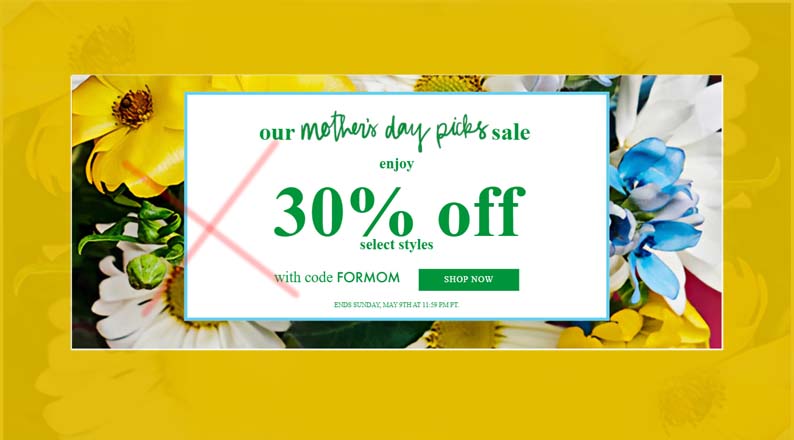
Make your sales copies stand out by using persuasive language that tells customers why you are taking a certain action or why you need them to do something.
ALSO READ: How eCommerce businesses can turn organic traffic into valuable leads
Conclusion
ECommerce copywriting mistakes are commonplace. It is difficult to write a sales copy that communicates effectively to the diverse needs of everyone that visits your homepage or the product page.
However, investing in mastering the art of creating compelling and action-oriented sales copies is not negotiable. Effective communication is so crucial to running an eCommerce business that failed to interact persuasively and convincingly with your target customer can cost you not only leads but also sales and profitability.
That said, there are common copywriting mistakes you must avoid, including an excessive focus on product features, lack of specificity, too dense and poorly structured descriptions, failure to support product claims, and the over-use of factual information.
You can avoid these mistakes by highlighting product benefits, using more specific product descriptions, making the descriptions scannable, and balancing the use of facts with a simple story.
Additionally, customers don’t understand how much a product should cost because several factors go into pricing; hence, failure to use the concept of mathematical literacy in eCommerce copywriting can cost you quick and easy sales.
Remember to also keep your copy-written pieces persuasive by explaining to the favorite customer why you are taking a given action or why they should do as you say.
Acowebs are developers of WooCommerce plugins that will help you personalize your stores. It supports the additional option with feature-rich add-ons which is WooCommerce Product Addons, that are lightweight and fast. Update your store with these add-ons and enjoy a hassle-free experience.












 Login
Login
 Cart
Cart